Carbohydrates Defined
The dictionary defines carbohydrates as:
“Carbohydrates are the major source of metabolic energy, the sugars and starches. Chemically they are composed of carbon, hydrogen, and oxygen in the ratio C n : H 2n : O n” (Bender and Bender 1995, p. 72).
Carbohydrates are organic compounds important as food to plants and animals and derived from carbon dioxide and water, through the action of sunlight on chlorophyll.
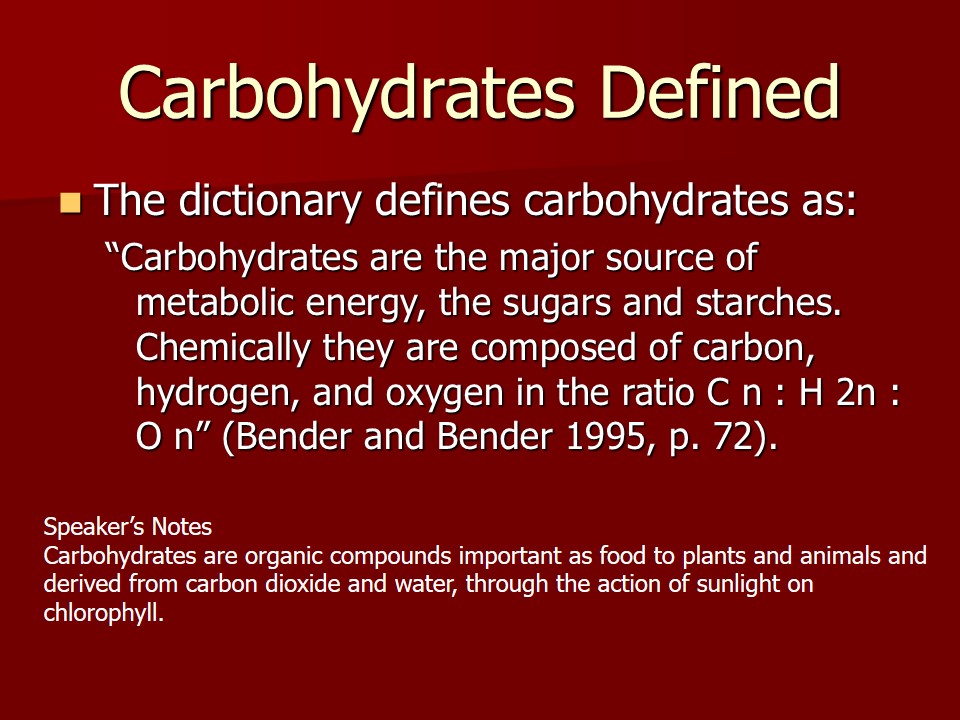
Main Carbohydrates
The main carbohydrates are:
- the monosaccharide sugars, of which glucose, fructose, and
- galactose.
- Carbohydratesnm provides 50-70% of energy intake (Harrison, 2000).
It is possible speak of these as the physical energy values to distinguish between these and similar energy values obtained from the oxidation of these same foods in the animal body, the physiological energy values.
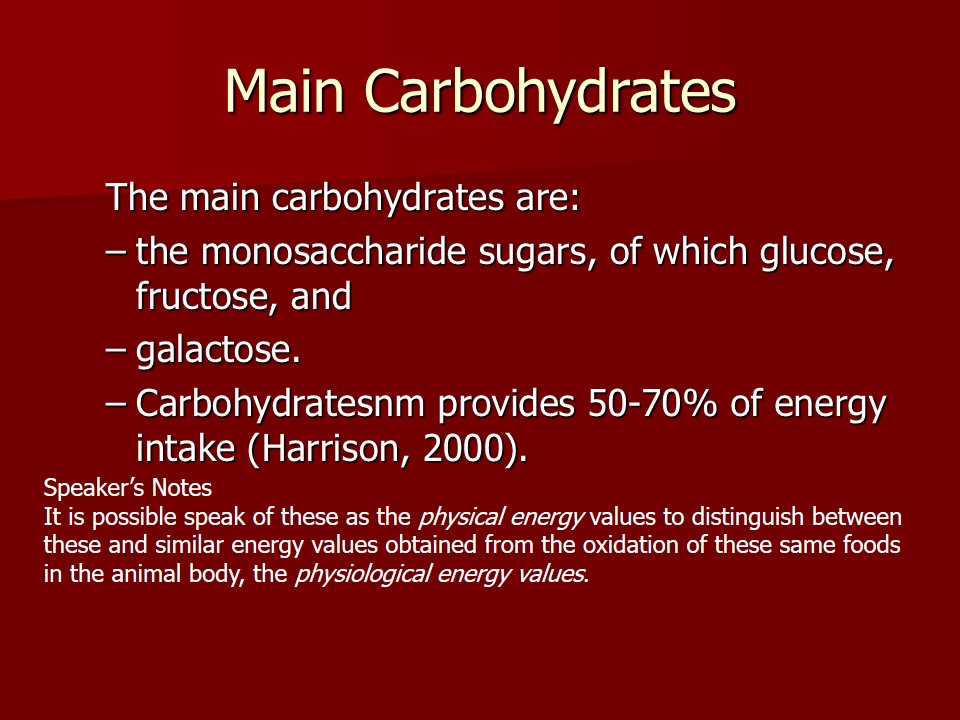
Complex Carbohydrates
- Complex carbohydrates consists of many single sugar units
- Larger polymers of carbohydrates are called polysaccharides.
- starches (they represent polymers of glucose units, either as a straight chain (amylose) or with a branched structure (amylopectin). This groups is digested by humans.
- other polysaccharides known as non-starch polysaccharides (NSP), and are not digested by human enzymes (Mielke et al 2005).
The distinction is not an exact one since no difference in the energy output is obtained from Carbohydrates when they are oxidized in vitro or in vivo. In both instances the energy liberated is always quantitatively identical respective of the rate at which it is set free, provided, of course, that the oxidation is complete.
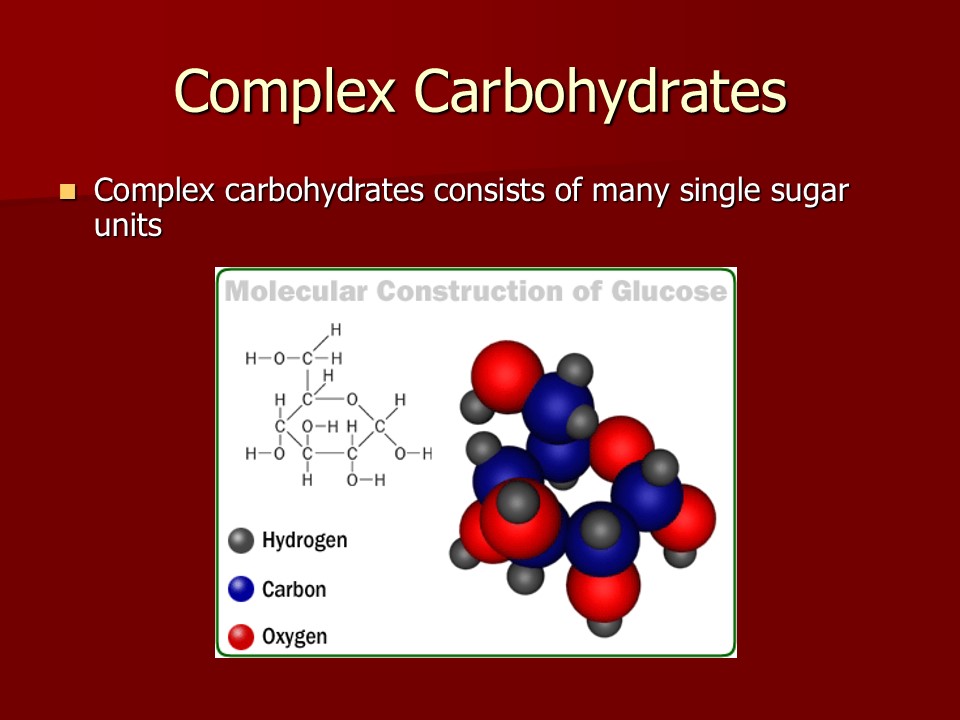
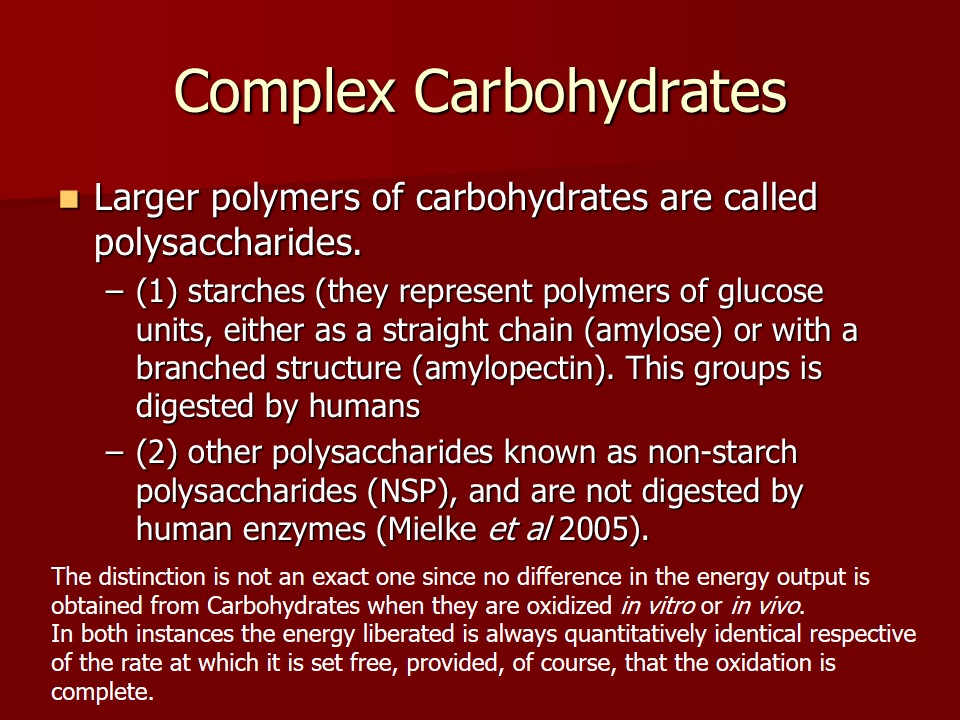
Short and Longer Chains
- Short chains of three to ten monosaccharides are oligosaccharides. This group is found in foods (onions and legumes).
- Longer chains of sugars are polysaccharides. The type includes glycogen in animals, and starches and fibers in plants.
Ultimately the energy needs of the body are derived almost wholly from the body proteins themselves as the stores of body fat are exhausted.
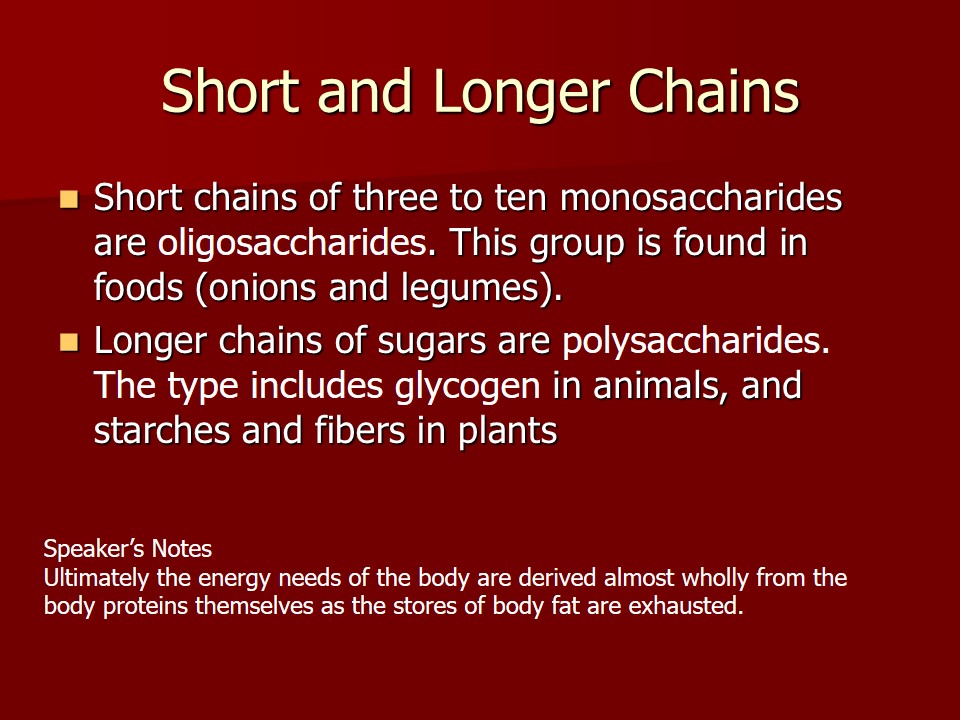
Simple and Complex Carbohydrates
- Simple carbohydrates are sugars.
- Complex carbohydrates are made of many sugars joined together (Grosvenor and Smolin 2005).
Good carbohydrates are substances in their natural state. This category involves food which has not been altered or changed by people. The benefit of good carbohydrates is a low glycemic index. The examples are fruits, vegetables, beans, nuts, cereals, etc. In contrast, bad carbohydrates are those substances processed by people.
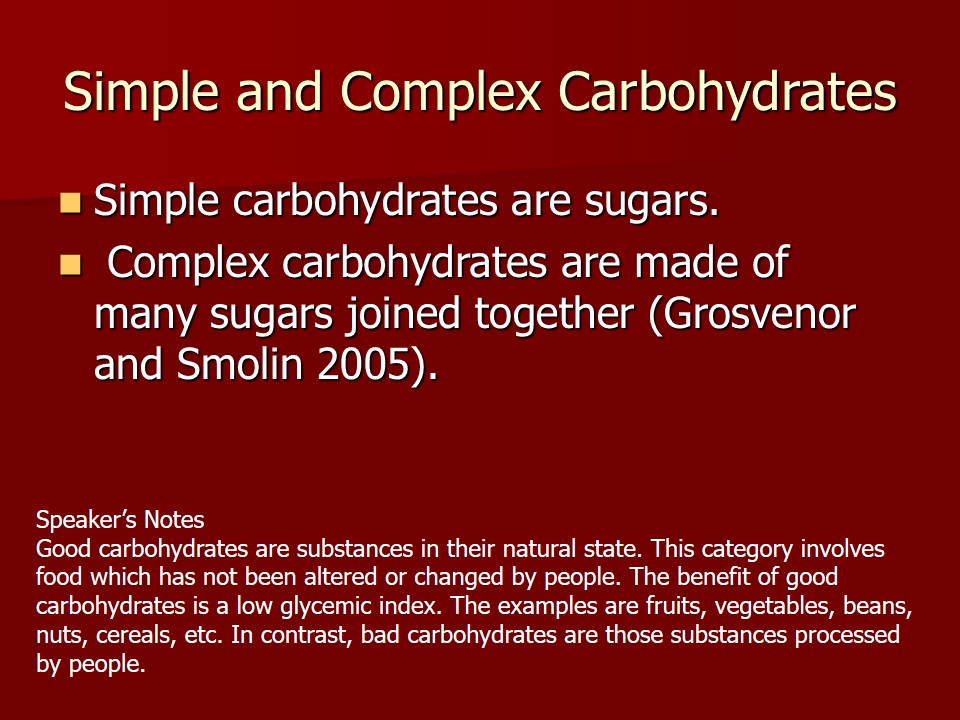
Nutrition
- The nutrition process begins in the mouth.
- Maltose is broken down into two glucose molecules with the help of the enzyme maltase, Sucrose is broken down by sucrase to glucose and fructose, and lactose is broken down by lactase to form glucose and galactose (Garrow, 2001 ).
- The end result are monosaccharides—glucose, galactose, and fructose—are then absorbed and transported to the liver.
- Fructose and galactose are the min source of energy.
- Some glucose is stored and some enters the general blood circulation.
In general, the physiologic energy value of proteins is, on the contrary, less than its physical energy value.
It is well known that while certain Oriental peoples are capable of strenuous exertions on a diet which consists mainly of carbohydrates (rice) the Eskimo of the far North depends primarily upon a diet of protein and fat for his energy supplies.
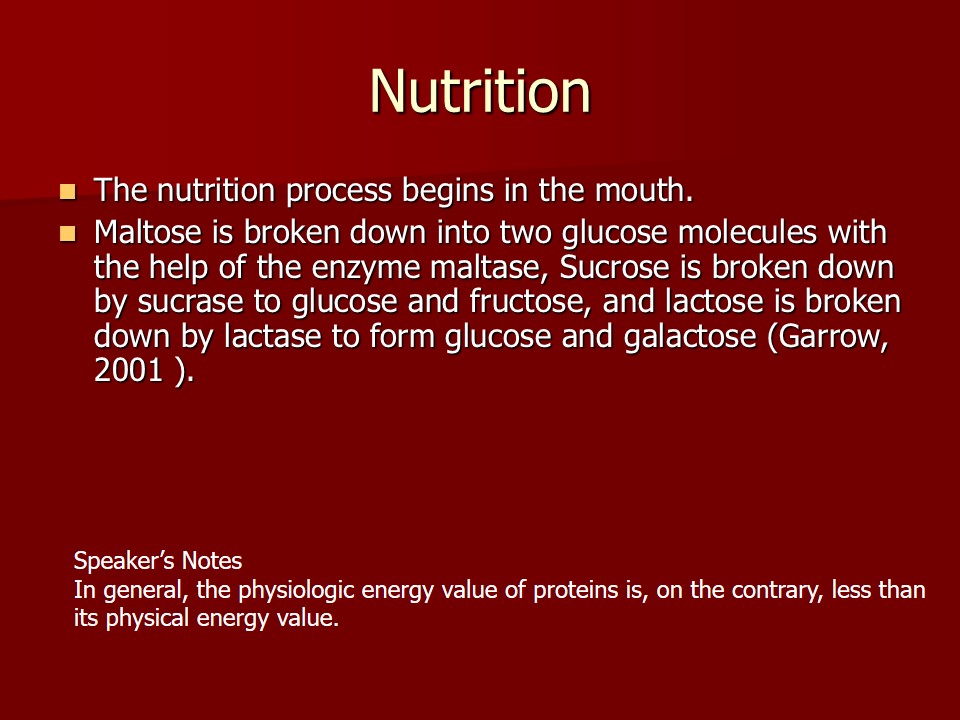
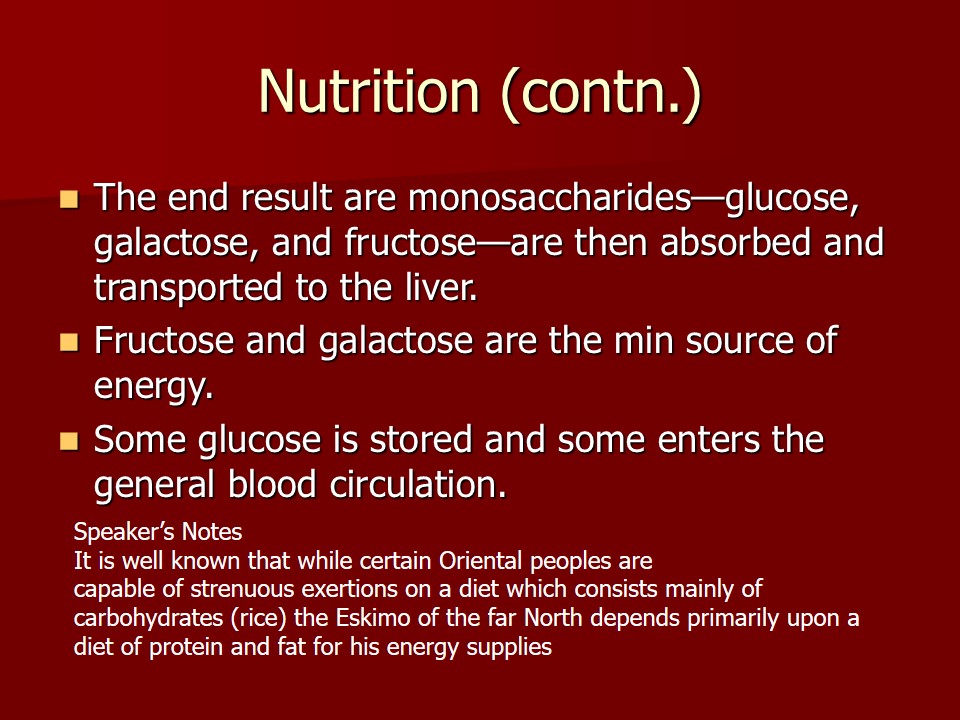
Benefits of Carbohydrates
- Easily-obtained energy.
- The source of glucose.
- Dietary fiber.
- Insoluble fiber.
The end-products of the oxidation of these two substances are the same under all conditions, namely, carbon dioxide and water.
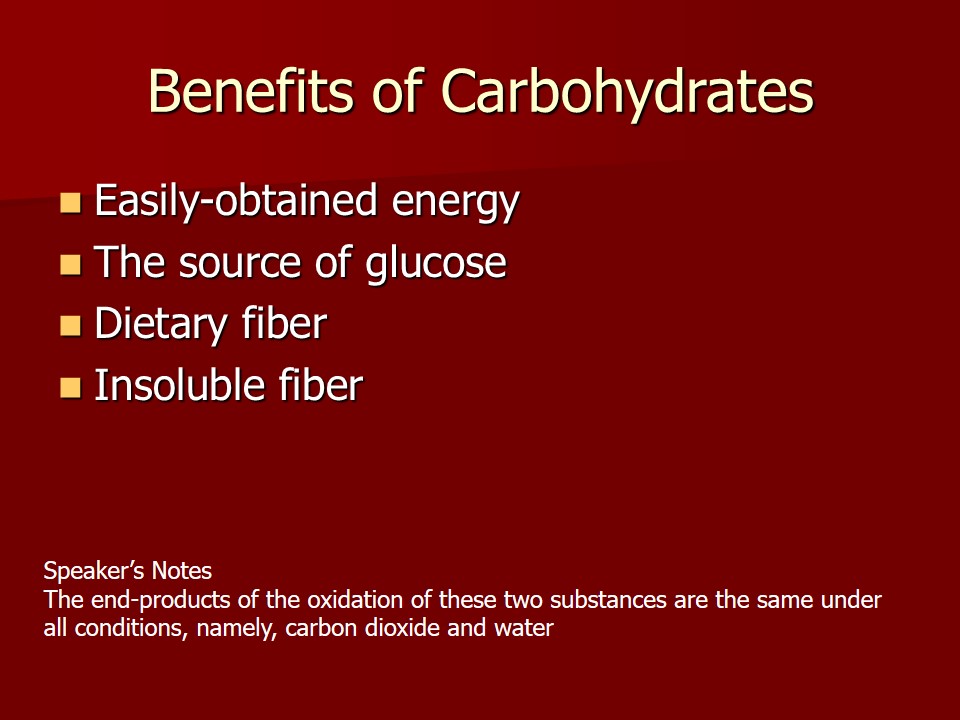
Diabetes
- Diabetes is a disodered metabolism characterized by high levels of blood glucose.
- According to statistical results, 18 million people in the USA have diabetes.
- Prevalence is high among African Americans, Hispanic Americans, and Native Americans (Harrison, 2000).
Some carbohydrates are dangerous for human health as it can cause obesity problems and other diseases. The most popular food with bad carbohydrates are candy, baked goods and sodas.
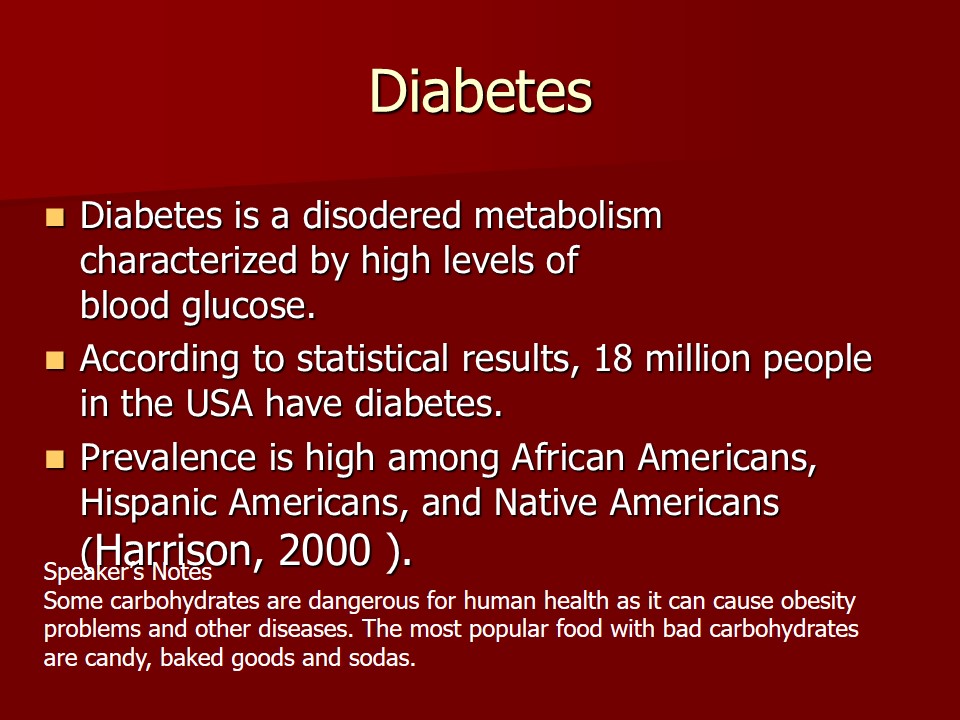
Health Risks caused by Diabetes
- It damages the heart,
- blood vessels,
- kidneys,
- eyes,
- erves.
That carbohydrates, as a source of muscle energy, are not indispensable is inferred from the fact that muscular exercise is still possible after carbohydrate starvation when the respiratory quotient would indicate that fats almost alone were being oxidized and furthermore that diabetic individuals.
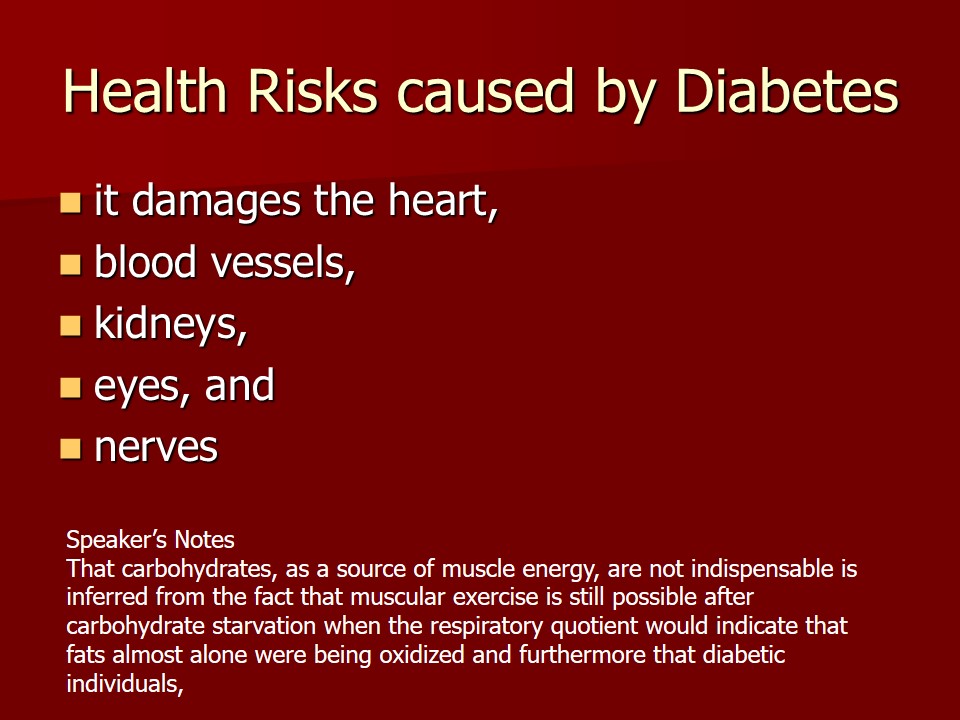
Diabetes II
- This type is characterized by a decrease in the sensitivity of cells to insulin; insulin is present, often in high levels, but the cells cannot respond to it.
- The consequence is limited amounts of glucose which enters the cells so blood glucose levels rise.
- Causes of Diabetes II:
- Environmental factors,
- genetic predisposition,
- Life style.
People who can utilize little or no carbohydrate, are capable of considerable muscular activity again with a low respiratory quotient indicating a preponderance of fat oxidation.
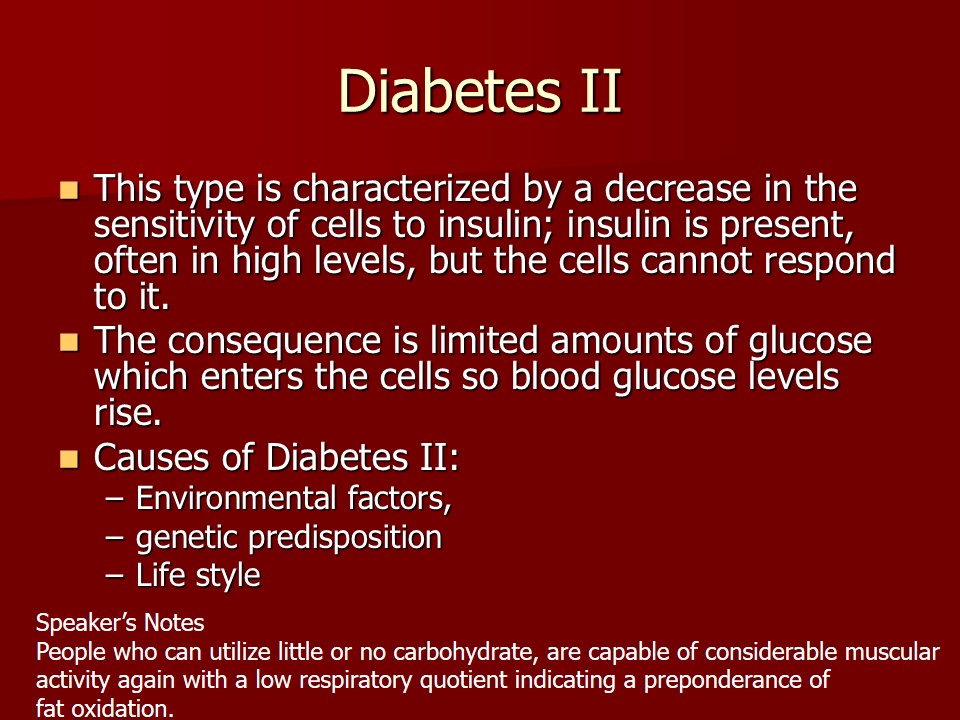
Comments
The chief and probably the entire burden of physical exercise usually falls upon the carbohydrates and fats as energy sources. It is generally distributed between these two according to the diet on the days preceding the exercise.
The more carbohydrates eaten the greater is the amount which is oxidized and the respiratory quotient rises, but when the carbohydrate intake is low the oxidation of fats is increased and the same quotient falls.
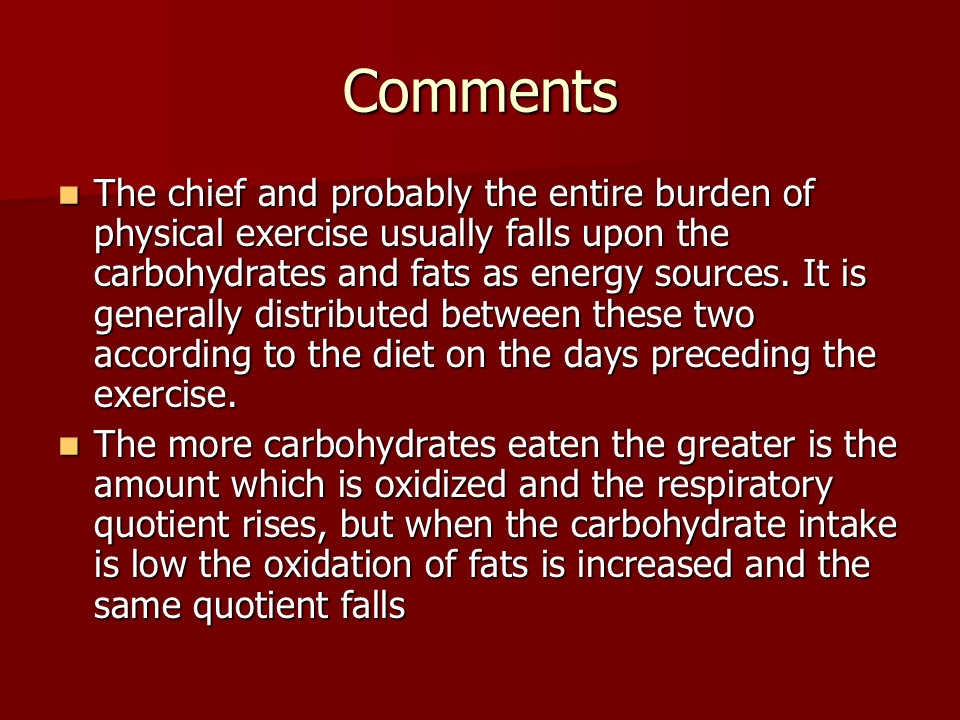
References
Bender, A. E., Bender, D. A. (1995). A DictionaryofFoodandNutritionBook Oxford University Press, p. 72.
Harrison, G.A. (2000) Human Biology: An introduction to human evolution, variation, growth, and adaptability (Oxford Science Publications). Oxford University Press, USA; 3 edition.
Garrow, J. S. (2001). Aetiology of obesity in man. Chap. 6 in Obesityandrelateddiseases. Edinburgh: Churchill Livingstone.
Grosvenor, M. B., Smolin, L. A. (2005). Nutrition: EverydayChoices. Wiley; 1 edition.
Mielke, J. H., Konigsberg, L./W., Relethford, J.H. (2005) Human Biological Variation. Oxford University Press, USA.